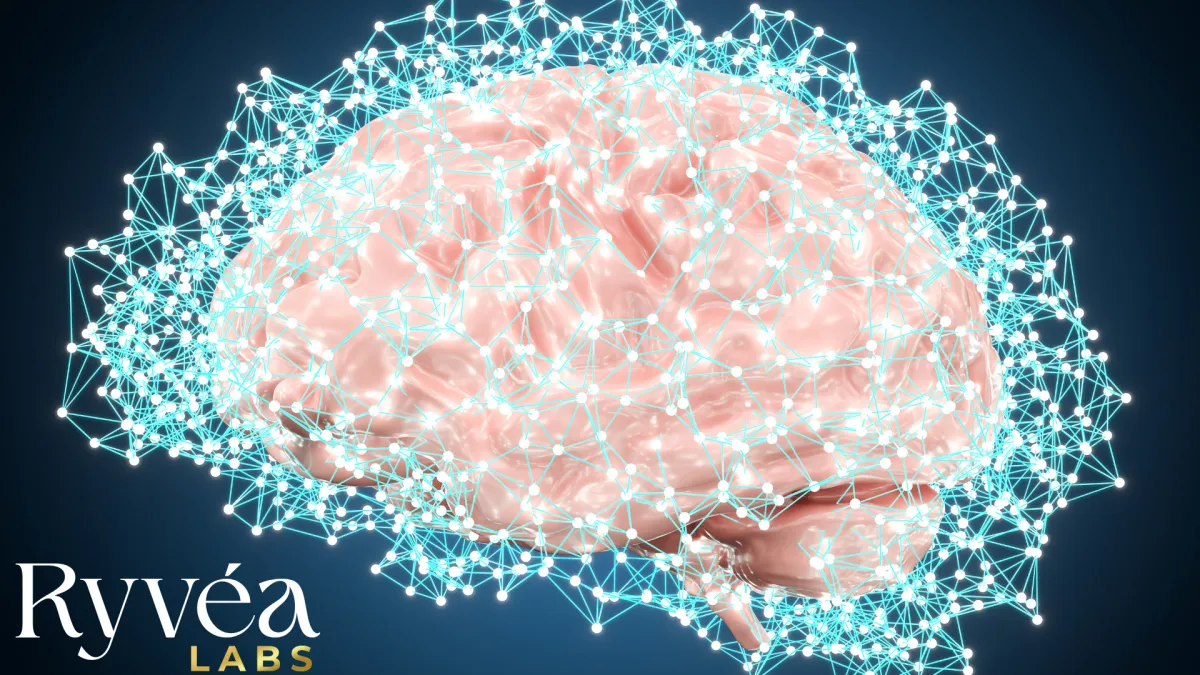
Cognitive Peptides Explained: Are They the Future of Mental Clarity?
Cognitive Peptides Explained: Are They the Future of Mental Clarity?
“There are peptides under investigation that may modulate brain function and enhance cognitive processes like memory, focus, and neuroplasticity.”
Disclaimer: This is a publicly sourced quote, used for educational context only. (Dr. Daniel Stickler, Cognitive Optimization Expert)

Introduction
From brain fog to burnout, people are increasingly turning to nootropics—substances that may support mental clarity and performance. One emerging category? Cognitive peptides.
These are short chains of amino acids being studied for their potential effects on focus, memory, mood, and neuroprotection. In this guide, we’ll explain what cognitive peptides are, how they might work, and what science has to say about their future in brain health.
What Are Cognitive Peptides?
Cognitive peptides are small, lab-made molecules that act as chemical messengers in the brain. Researchers are investigating how these compounds may:
Support memory formation
Enhance focus and attention
Modulate stress or anxiety
Stimulate brain-derived neurotrophic factor (BDNF)
Protect neurons from inflammation or aging
They don’t make you “smarter”—but they may help the brain work more efficiently or resiliently under certain conditions.
Intro to nootropics and cognitive support peptides:
Examine.com – Nootropic Peptides
Top Cognitive Peptides Being Studied
While none are FDA-approved for mental enhancement, several peptides are being researched for potential brain benefits:
1. Semax
Originally developed in Russia, Semax is studied for its effects on attention, learning, and stress modulation. It may increase BDNF and dopamine levels in certain brain regions.
2. Selank
Another neuropeptide developed alongside Semax, Selank is being researched for anxiolytic (anti-anxiety) and mood-stabilizing effects. It may influence GABA and serotonin activity.
3. Dihexa
Developed by researchers at Washington State University, Dihexa is under investigation for memory and neurogenesis. It may help form new neural connections and protect existing ones.
4. PE-22-28 and N-Acetyl Selank
These analogs are newer research compounds showing early promise in modulating inflammation and cognitive fatigue.
Early-stage summary of Selank and Semax:
PubMed – Semax and Cognitive Effects
How Might Cognitive Peptides Work?
Peptides can cross the blood-brain barrier more easily than larger molecules. Once there, they may influence neurotransmitters, brain inflammation, or cellular energy. Some mechanisms under investigation include:
Boosting levels of BDNF, which supports learning and plasticity
Increasing dopamine or acetylcholine levels
Supporting blood flow or nutrient delivery to the brain
Reducing oxidative stress and inflammation in neurons
These peptides are not stimulants—they don’t force alertness like caffeine or amphetamines. Instead, they may optimize how your brain functions behind the scenes.
For an overview of cognitive peptides’ effects and limitations:
Nootropic Zone – Peptides for the Brain
Are Cognitive Peptides Safe?
Most cognitive peptides are classified as research-use-only compounds. That means:
Many are sold online under disclaimers like “not for human use”
Effects and dosage can vary widely between individuals
Potential side effects include:
Mood changes or irritability
Sleep disruption or vivid dreams
Headaches or fatigue
Unknown interactions with medications
Until more clinical trials are completed, these compounds should be approached with caution.
Safety advisory on experimental nootropics:
Stat News – The Gray Zone of Brain Supplements
Are They Legal?
In the U.S., most cognitive peptides are legal to possess and buy for research purposes, but not to market or sell for human consumption.
They are not dietary supplements, and their legal status is similar to other grey-market compounds: technically unapproved, loosely regulated, and often mislabeled online.
For clarity on regulation:
FDA – Drug and Supplement Classification
What to Consider Before Exploring Cognitive Peptides
Before considering any peptide for mental performance:
Consult a healthcare provider
Understand it’s likely unapproved and experimental
Check supplier testing and transparency
Start with research—not self-experimentation
Conclusion – Clarity Starts with Education
Cognitive peptides are a fascinating area of research that may one day play a role in treating mental fatigue, neurodegeneration, or attention disorders. But right now, they are early-stage tools—not solutions.
At Ryvéa Labs, we believe mental performance starts with sleep, nutrition, and trusted science—and that curiosity should always be matched with caution.
Download Our Free Peptides 101 Ebook
Final Thoughts
Peptides like Semax, Selank, and Dihexa may offer potential brain benefits, but much remains unknown. As research grows, so will the need for transparency, regulation, and education. Ryvéa is here to help you navigate this emerging space responsibly.
